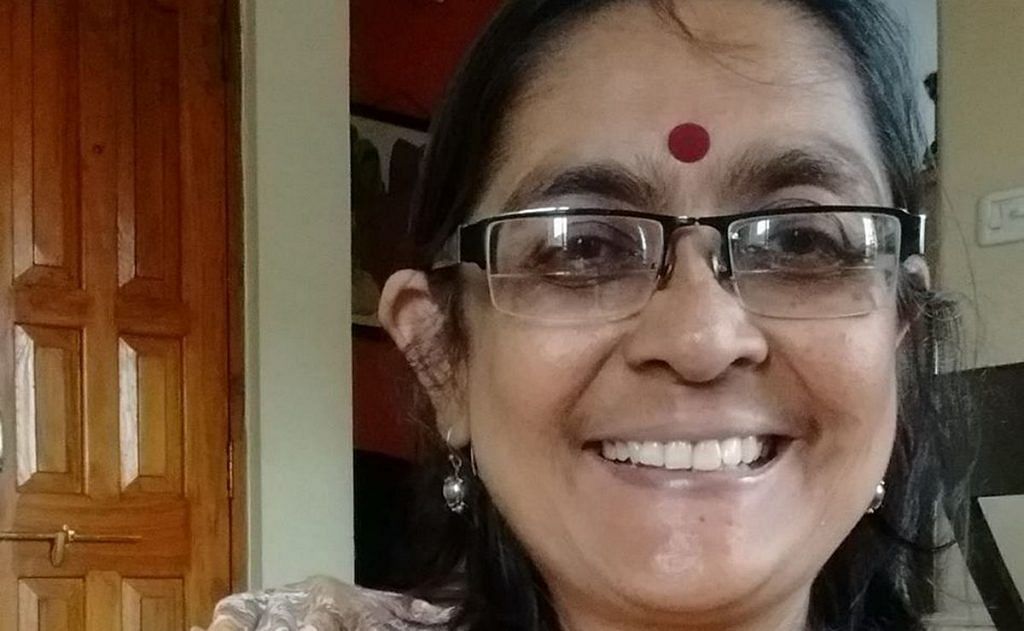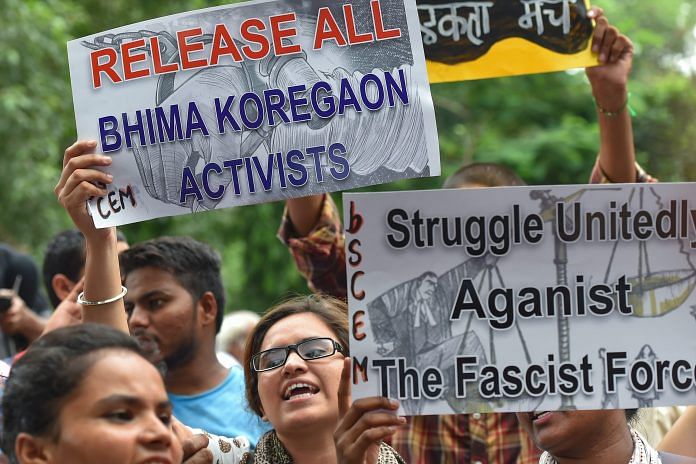Growing up, I would often call my mother ‘Jhansi ki Rani’ because she wouldn’t be deterred by having to carry her child whenever someone knocked on our door for help. My mother and I would generally travel on a small moped. At times when it would get late at night and I would start falling asleep behind her, she would tie me to her waist with a dupatta – and thus the name I chose for her.
I remember this one incident as a child when I was growing up in Nagpur that has stayed with me. I must have been 8 or 9. It was quite late in the night. A young boy had come knocking at our door to inform my mother about a young girl who had committed suicide by pouring kerosene on herself. My mother woke me out of bed and took me along to this place, a small basti where the incident had happened. My father was out of town and there was no one else at home to be with me. On reaching this basti called Juni Mangalwari, a small Dalit ghetto in Nagpur, I understood for the first time about “dowry death” and how women are killed to make it look like suicide – only to get more dowry.
Throughout my childhood, my mother would usually take me along for most of her work since she couldn’t afford any help. Thus, as a kid, I have attended numerous seminars and academic events, revolving around her work on human rights. In fact, as a child I always accused my parents of not giving me enough time because like other mothers I would want her to stay at home with me. Instead, I always came back to an empty house!

Also read: Dalit activists among five arrested for ‘inciting’ Bhima Koregaon violence
When you look back at her life – it really felt as if this woman hardly spent any time doing something for herself. She has only worked, selflessly and relentlessly, to bring change and justice in the lives of other women, especially those from the most economically backward classes (and castes) of our Indian society. I would say witnessing and experiencing all of this first-hand has played a pivotal role in my upbringing and understanding of the society I lived and grew up in.
Yet, it never prepared me for what happened in 2018.
Since the day the Pune Police landed at our house on 6 June 2018, the harassment of my mother and my family has never stopped. The state is directly responsible for the incarceration of my mother, along with eight other activists from different parts of India. The illegal raid at my parents’ house in Nagpur, my mother’s subsequent arrest, and the series of false accusations levelled by the state after her arrest were extremely defamatory. Absurd narratives against her, such as a plot to assassinate the Prime Minister and being “anti-national”, were flung callously. These narratives have shaken me and my father immensely. It is truly unjust to witness her being behind bars, locked up in a cell when all her life she has been a good academician who fought for an equal and just society.
My mother’s work in the last decade has primarily been academic. She researched on Dalit women writers from Maharashtra for which she was invited by the Norwich University in the UK to present a paper in 2015. During her younger days, when she was quite active (physically) doing a lot of grassroots work in the slums and other places, she faced the state’s brunt from time to time. Her work was never appreciated by the Nagpur Police because she had fought for justice for a tribal girl who was raped in police custody near Nagpur in the early 2000s. Over the years, her activism had reduced considerably with age and more academic pressure that came with her position as the Head of the Department of English at Nagpur University, which she held at the time of her arrest in 2018.
Also read: A year after Bhima-Koregaon clashes, here’s why the Maharashtra village erupted
My mother has not been found guilty, she is just an undertrial political prisoner but she is kept alongside convicted prisoners in jail. Moreover, the conditions in Yerwada Central Jail fill me with despair. It is run on archaic and colonial regulations, which prohibit any visitors apart from direct family members – which leaves just my father, my sister and myself to meet her in jail. So many of her friends, colleagues and cousins who wish to meet her can’t do that. The prisoners are being pushed into complete isolation like this.
She has not just parted with her freedom and liberty. At Yerwada Central Jail, they do not give her any bed or chair, not even a proper mattress to sleep on the floor!
My mother is 60 and has severe arthritis. Her orthopedic doctor has specifically barred her from squatting or sitting on the floor, which would make her knee condition worse. She is also a glaucoma patient and has high blood pressure. But in the jail, she sleeps on a blanket on the floor and has to sit at all times on the floor. The inhumane living conditions inside the jail keep us all worried about her health, both mental and physical. Ever since my mother’s arrest a year ago, there has not been a single day in my family’s life when we have not felt harassed by the state. As a result, the fear of harassment has managed to successfully pervade into the lives of the family and friends of all the arrested activists and create an atmosphere of complete breakdown and paranoia.
Also read: Village at centre of Bhima-Koregaon violence is peaceful, but uneasy
Her students and colleagues from Nagpur University have given statements attesting to her commitment. She was living a regular life with her family, fighting for the rights of the underprivileged and all those who have been denied access to justice. Isn’t it a strange coincidence that it’s the same story with all the other accused in this case? Why would human rights activists with no prior history of violence, graduate straight to “waging war against the nation and plotting to assassinate the PM?”
On the other hand, the upper-class groups and their leaders who reportedly orchestrated the attacks in Bhima Koregaon, have a clear history of violence, intimidation and using force to change the narrative of history. In addition, the State Inquiry Commission that was set up to probe into the attacks is a joke in itself – with the prime accused being allowed to sit at the hearings and influence the witnesses.
Is this not a violation of her human right to a fair and just trial?
Our Supreme Court sings paeans to the supremacy of “human liberty” in law, and then uses legal lacunae to excuse itself from stepping in and ensuring her rights, knowing fully well that they are being trampled upon. To those upholders of justice sitting high and mighty on their plush seats in our top courts, I ask you – what good is the word “liberty” in our Constitution if you have completely drained a human’s life even before a trial has begun?
The author is the daughter of Prof Shoma Sen, one of the activists arrested by the Pune Police last year in connection with the Bhima Koregaon violence. Views are personal.
This article was originally published as a blog by Amnesty International India on 6 June, 2019. It is being re-produced here in light of the anniversary of the raids and arrests of activists. Amnesty International India is currently running a campaign #FreeBK9 demanding their immediate release.




It is a feudalistic draconian rule against all human rights. I condemn this and she and others arrested
That’s one side of the story. The thing I got from this article was that she was highly motivated for various causes and the daughter loves and respects her.
But I find it hard to believe that Supreme court imprisoned her for no reason. Why was her bail denied? There must have been reasons. What were those? The state does oppose bail in most cases, but if the evidence is baseless or if none exists, courts in India are quick to grant bail. Something tells me this is only half the story. Would love to read more about the other side too. It would be good if print can interview the state prosecutor or write about the chargesheet or evidence on record. Most hearings in Indian courts have detailed paper trail, so I am surprised none of those records are referenced here.
There has to be a mechanism to deal with the menace of Urban Nexals more effectively. Giving them Govt accommodation & feeding them on honest Taxpayers money probably is not the way.
So what does your exalted highness propose? Shoot them dead on sight?
There is zero prospect of this now happening, of course, but the law on Sedition needs to be rescinded. The sensible guidelines framed by the apex court as far back as in 1962 for it to be invoked are flouted with impunity all over the country.
This is archaic. And during the elections then Home Minister Rajnath Singh said that the sedition laws would be made even more stringent. Looks like we are heading for a dictatorship that brooks no dissent or difference of opinion. This seems worse than Indira Gandhi’s Emergency.